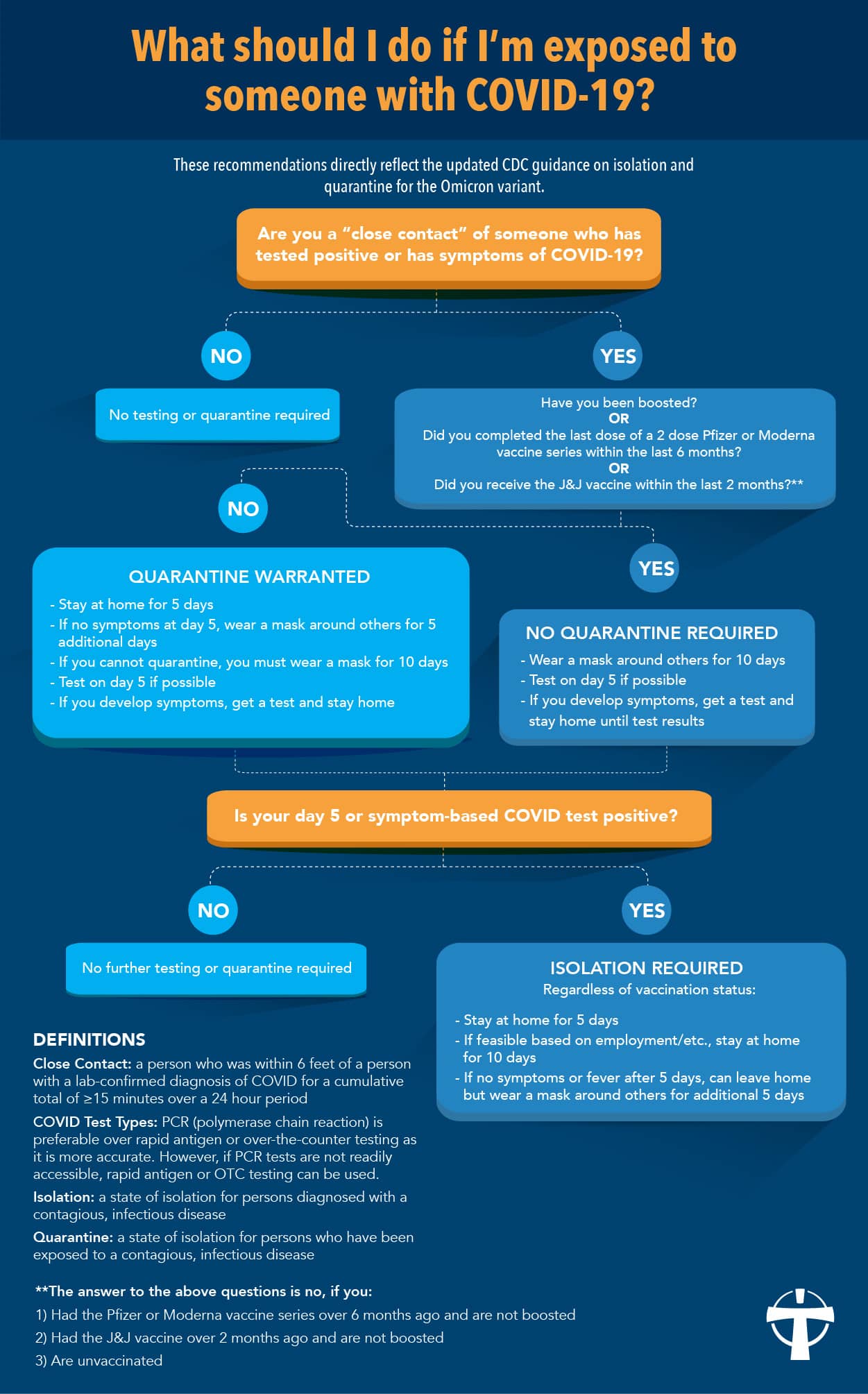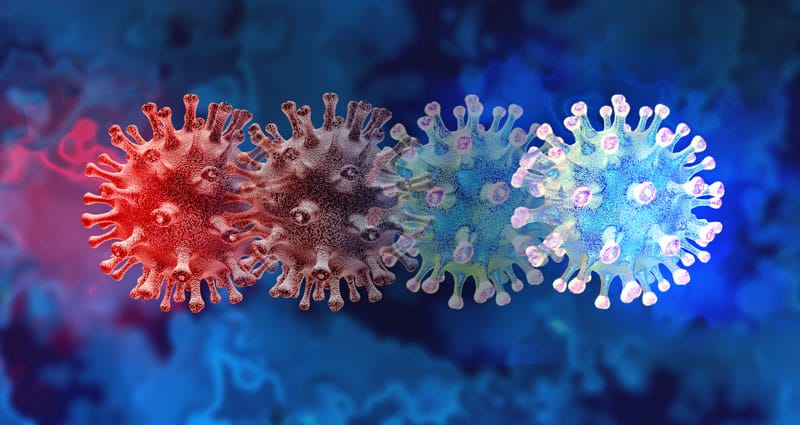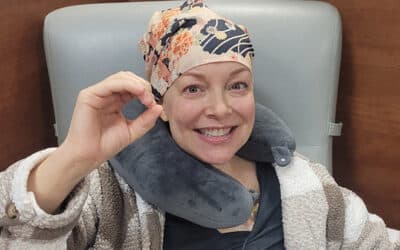Here we are again, facing a fifth surge of COVID-19. We all have questions about the COVID-19 Omicron variant.
Katie Taylor, MD, medical director of infection prevention at Our Lady of the Lake Regional Medical Center and assistant professor of clinical medicine at LSU, and Rebecca Curran, MD, PhD, family medicine doctor and epidemiologist with Lourdes Physician Group, provide some answers and share what we can do now to keep each other healthier and safer.
What is the Omicron Variant?
Omicron is the latest variant of COVID-19, and for better or worse it’s likely to blow through very fast. Omicron is more contagious and spreads quickly. The early data suggests illness is not as severe for most people who get infected. Some of that we can thank for the safe, effective vaccines available for everyone ages 5 and up.
How Do Omicron Symptoms Differ?
Generally, symptoms seem much milder than earlier COVID-19 variants, and Omicron can look more like a cold. Many people may think they simply have the sniffles, a mild cold or “they’re burning cane.” Get tested for COVID-19 as soon as you can if you feel sick.
From a public health perspective, Omicron still has the potential to overwhelm our healthcare system. If half as many people need to go to the hospital but 10 times as many are infected with Omicron, the math doesn’t work in our favor. We appreciate everyone doing their part with masking and vaccination so the healthcare system can take care of those people who will get very sick.
Do Masks Work Against Omicron?
Yes. We recommend that everyone continue masking indoors while with people outside their household as long as COVID-19 rates remain high. Wearing a mask is something we can do to protect each other even when it’s not a legal requirement, as our masks protect those around us more than they protect the wearer.
Upgrading your mask can improve the protection it offers you as a wearer as well as providing better protection for those around you if you are infectious. Disposable medical grade masks work significantly better than cloth masks, but fit is really the key. Tweak the ear loops, make sure your mask includes a nose piece and air isn’t leaking out. It will also keep your glasses from fogging up if you wear them. A cloth mask over a surgical mask can provide better fit too.
Protection is best when masks cover the nose as well as the mouth and are not pulled down to speak to another person face-to-face or over the phone.
What Should I Do If I’m Exposed to COVID-19?
The Centers for Disease Control & Prevention has updated its guidance for isolation and quarantine for people who have been exposed to COVID-19. Everyone with a known exposure should attempt to test, if tests are available, 5 days after the known exposure. Mask at all times around others for 10 days, regardless of vaccination status. For those who are boosted and remain asymptomatic, no quarantine is required. For those who are overdue for a booster, a 5-day home quarantine is advised.

How Do I Get a COVID-19 Test?
Knowing whether you have COVID-19 can help you make the best choices to avoid spreading it to other people.
A big part of managing COVID-19 as a society is about protecting our healthcare system so we can take care of those people who are sickest. That means those who are healthier should not come to the ER. The Emergency Room is not a testing site for COVID-19.
Our providers offer video visits, including after hours, to connect you with the right care at the right time, including a COVID-19 test if needed. Connect with one of our skilled providers here.
Find access to community testing sites near you using the Louisiana Department of Health or the Mississippi Department of Health websites.
At-home tests are most accurate when you have symptoms, but they can provide some peace of mind when taken before being in large gatherings or around people more vulnerable to serious COVID-19 complications. Right now, at-home tests are very hard to acquire.
What Treatments Work Against COVID-19 Now?
The best thing to do if you’re sick with COVID-19 now is acetaminophen, lots of fluid and rest. Stay in touch with your healthcare provider if symptoms worsen. Your doctor may prescribe an inhaler, steroid or another medication.
Unfortunately, the monoclonal antibody infusion that has been so helpful in the past is not effective against Omicron, so this treatment is not available.
The newer treatments that recently received emergency use authorization from the Food & Drug Administration are not yet widely available.
What Can I Do to Protect Myself?
Make sure you’re up to date with your COVID-19 vaccination. Everyone older than 5 is eligible for a free, safe and effective vaccine. Those who are 16 and 17 who received their second dose of the Pfizer vaccine more than six months ago can get a booster, and everyone ages 18 and up whose last Pfizer or Moderna vaccine was more than six months ago or whose initial Johnson & Johnson vaccine was more than two months ago should get a booster. Learn more about boosters here.
Stay away from crowded places. Maintain physical distance and mask up when you’re indoors around others outside of your household. Continue to wash your hands frequently.




